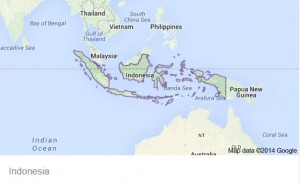
Lawmaker Moharriadi Syafari said a majority of provincial lawmakers supported criminalizing gay sex. They are debating the law with a view to pass it and several others regulating personal behavior before Friday, the last day of the current assembly.
Gay rights activist King Oey said Wednesday he would urge the central government to try and use its influence to get the bill scrapped or appeal to the country’s constitutional court.
“There is no room to talk about this democratically in Aceh because once someone expresses an objection he or she will immediately be branded ‘anti-Islam’,” he said. “The only way to stop it is by the national level, particularly at the level of the minister of home affairs.”
If the law is passed by the 69-member assembly, the Aceh governor will have to sign it before it can be implemented.
Indonesia’s secular central government granted Aceh the right to implement a version of Islamic Shariah law in 2006 as part of a peace deal to end a separatist war. A religious police and court system has been established.
The central government doesn’t have the power to strike down a provincial law, but it can ask Aceh to reconsider laws.
The region already canes people found guilty of adultery, gambling and consuming alcohol.
Among other stipulations, females wearing tight clothes can be fined, as can people who skip Friday prayers.
Aceh is considered more devout than elsewhere in Muslim-majority Indonesia, but the level of support for the implementation of the laws is unclear.
The articles on gay sex are included in a revised package of Islamic laws being considered by the government. An earlier section that called for people to be stoned to death for adultery has been dropped from the latest version. Syafari said this was because of complaints from the central government.
The draft says anal sex between men would be punished by up to 100 lashes of the cane, and that females found guilty of “rubbing” their vaginas or other body parts together for sexual pleasure would also be liable for caning.
It doesn’t mention other sex acts, raising questions over whether the region’s clerics considered the acts acceptable or even how much thought had gone into the drafting of the laws. Syafari acknowledged that this was a potential weakness, but there was still time for the draft to be modified.
Indonesia’s criminal code doesn’t regulate homosexuality. There is considerable tolerance in some sections of society toward gays, but few live openly. The country has become more religiously conservative over the last 20 years, and hardliners frequently seek to disrupt activities by gay rights groups.
RELATED STORIES
PH ranks among most gay-friendly in the world
Domestic workers find sexual liberation in HK